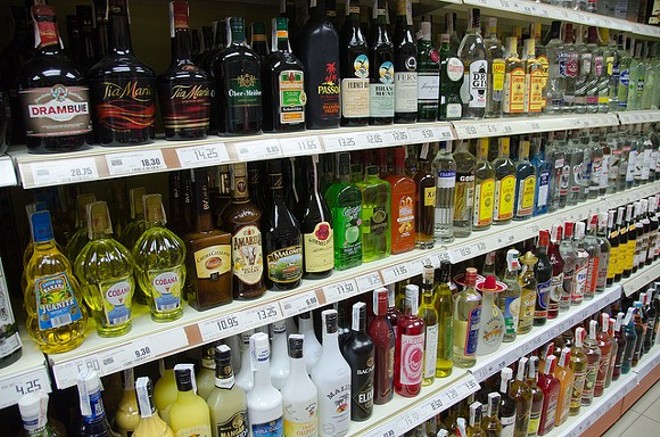Owners of small liquor stores want Gov. Rick Scott to veto a measure narrowly approved by the House that would allow retail giants to stock liquor on the shelves alongside groceries and other goods.
The House on Wednesday voted 58-57 after spending more than four hours over two days dissecting the heavily lobbied proposal (SB 106), which would remove a Depression-era "wall" separating the sale of liquor and groceries.
Amit Dashondi, owner of A-1 Liquor in Melbourne, said after the vote that without a gubernatorial veto, many liquor store owners will have no choice but to close and sell their liquor licenses to retail giants.
"It's going to be a big, devastating happening to the small business owner and the whole economy of the Florida state," said Dashondi, who joined a number of other liquor store owners watching the House vote from the visitors' gallery.
Scott spokeswoman Lauren Schenone said the bill, which was approved last month by the Senate in a 21-17 vote, is being reviewed.
The bill would repeal a 1934 law that requires liquor stores to be stand-alone facilities. Retailers such as Walmart and Target have pushed for the repeal, which would allow them to sell hard liquor in their stores.
In addition to repealing the separation law, the bill would prohibit new package stores from being licensed within 1,000 feet of schools; require retail businesses that sell gas to be 10,000 square feet or larger to receive liquor licenses; require small bottles, 6.8 ounces or less, to be displayed only behind the counter; and require that checkout clerks under the age of 18 to be supervised by people 18 or older when alcohol is being purchased.
Rep. Randy Fine, a Brevard County Republican who voted against the measure, predicted that if it is signed into law, "every gas station in Florida" will be built at least 10,000 square feet.
While Walmart and Target have lobbied for the contentious proposal, it has been opposed in recent years by Publix and ABC Fine Wine & Spirits. The issue affects Publix, at least in part, because it has opened stand-alone liquor stores in many of the same shopping centers as its supermarkets.
Backers argued the bill would repeal an antiquated law that no longer reflects the times.
House sponsor Bryan Avila, R-Hialeah, said the proposal isn't about religious or social issues, rather government intrusion into the marketplace.
"This bill, the only thing it does, is it makes a law that was created in the 1930s, in order to ease the sale of alcohol back into society during Prohibition, all it does is it repeals that law, which has outlived its time," Avila said. "I think as a society we can all agree the advances from the 1930s to 2017 have been astronomical, yet this law still exists."
Rep. Ralph Massullo, R-Lecanto, agreed, calling the proposal a "free market" issue.
"This is just making the playing field a little more equal, and with that I say, let's take the walls down," Massullo said.
But, opponents said no one is calling for the repeal other than the teams of lobbyists hired by the retail giants. Also, they warned of the closure of small, independent liquor stores, an increase of alcoholism and more access to alcohol for minors.
"If you're the owner of the shopping center and the 60,000-square-foot tenant comes to you and says, 'That guy in the corner annoys me,' we all know the 25,000-square-foot store is gone," said Rep. Scott Plakon, R-Longwood.
Plakon unsuccessfully proposed a number of changes to the bill Tuesday, including not allowing businesses that sell liquor to hire minors.
Rep. Julio Gonzalez, a Venice Republican who is a physician, said evidence is overwhelming that the proposal will increase problems with drinking statewide.
"That's ethically and morally impossible for me to support," Gonzalez said. "The argument that the law is antiquated, it's from Prohibition, what did they know? You know, sometimes people got it right."
Rep. James Grant, R-Tampa, said that if critics of Avila's proposal were so concerned about the proliferation of liquor in Florida, they should be more concerned with new app-based services that allow home delivery of liquor.
"For us to stand up here today and pretend that this bill will have any massive societal impact, or even any noticeably significant societal impact, is a guess," Grant said.


